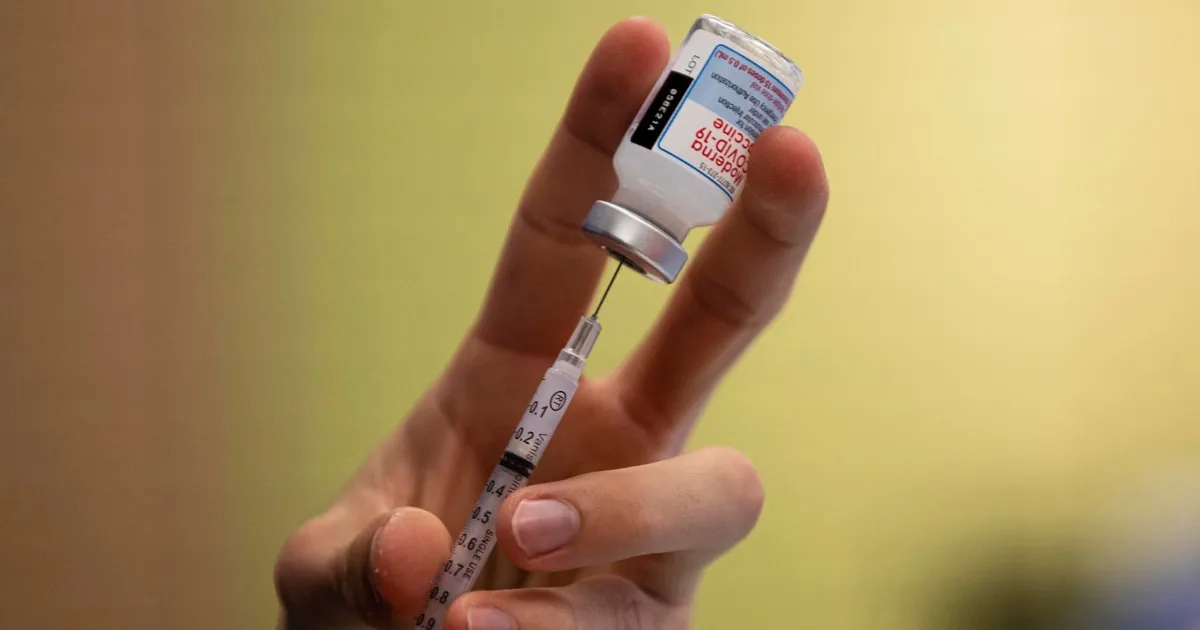
Moderna has announced promising results from a phase 3 clinical trial, indicating that its new combined Covid and flu vaccine outperformed existing standalone vaccines for both viruses. This significant study was published on Wednesday in the Journal of the American Medical Association and showcases the potential of messenger RNA (mRNA) technology in combating respiratory diseases.
The clinical trial, funded by Moderna, enrolled over 8,000 adults aged 50 and older during October and November 2023. Participants between the ages of 50 to 64 received either the new combination vaccine or the existing Moderna Covid vaccine alongside the flu shot Fluarix. Meanwhile, individuals aged 65 and older were given either the new vaccine or the Covid vaccine with a stronger flu shot known as Fluzone, which is typically administered to older adults due to its enhanced dose.
In this trial, participants received two injections—either the combination vaccine plus a placebo or the existing vaccines. The primary objective was to evaluate whether the new combination vaccine produced higher levels of antibodies against multiple strains of influenza and the XBB.1.5 Covid variant, compared to the traditional vaccines. This type of serological testing is essential for researchers to determine a vaccine's efficacy and the duration of its protective effects.
The results revealed that antibody levels for both Covid and nearly all influenza strains were significantly higher in individuals who received the combination vaccine compared to those who received the existing shots. Dr. Buddy Creech, a pediatric infectious disease physician at Vanderbilt University Medical Center, noted that the antibody levels generated by the new vaccine were approximately 20% to 40% higher.
Dr. Jesse Goodman, a professor of medicine at Georgetown University and former chief scientist at the Food and Drug Administration (FDA), expressed optimism regarding the trial's outcomes. He explained, “We know that antibody responses generally correlate with a degree of protection. This is very promising and suggests this vaccine should have similar or higher levels of protection compared to traditional flu vaccines.”
While the trial results are encouraging, participants who received the new vaccine reported more frequent side effects, such as fever and chills. Dr. Creech explained that these responses are indicative of the body's immune reaction, treating the vaccine as if it were a dual infection from both viruses.
The introduction of a combined vaccine would simplify the vaccination process for individuals, especially considering that both Covid and flu shots are typically administered in the fall. Experts emphasize the urgent need for a new vaccine that offers better protection, as current vaccines have been less effective in preventing infections.
Moderna is expected to use the trial data to support its application for FDA approval. However, the company has indicated that it does not anticipate regulatory approval for the combination shot until 2026. This timeline aligns with the FDA's recent requirements for late-stage data demonstrating the vaccine’s efficacy against influenza. It remains uncertain whether the FDA’s new mandate for all new vaccines to undergo placebo-controlled clinical trials will apply to this combination shot.
The FDA has already delayed the approval of Novavax's Covid vaccine, necessitating an additional clinical trial, and may impose similar requirements for Pfizer’s and Moderna’s updated Covid vaccines in the future. A spokesperson for Moderna declined to comment on these developments.
Dr. Peter Hotez, dean at the National School of Tropical Medicine at Baylor College of Medicine, raised concerns regarding the rising anti-vaccine sentiment targeting mRNA vaccines. He emphasized the potential of Moderna's combination shot as “a potentially very useful advance,” as it provides a streamlined approach to vaccination against two respiratory viruses.
Dr. Goodman noted that an mRNA-based vaccine targeting both Covid and flu could enhance the U.S. response to future influenza pandemics. The current flu vaccines primarily rely on growing virus strains in eggs, a process that is considerably slower than the mRNA vaccine production method.
As the world continues to grapple with respiratory viruses, the development of innovative vaccines like Moderna's combined Covid and flu shot may play a crucial role in public health and disease prevention.